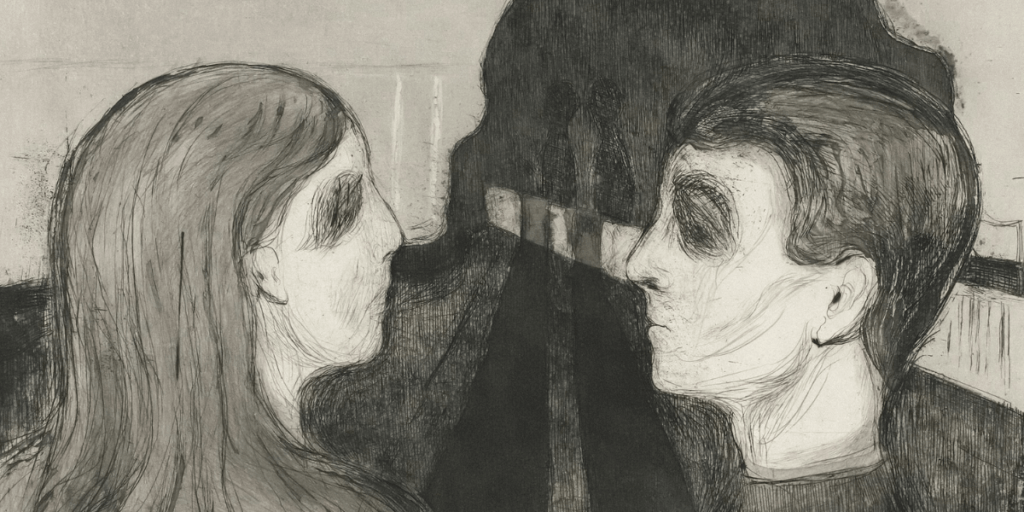Studies suggest around 30–40% of unmarried relationships and 18–20% of marriages see at least one incident of sexual infidelity.
This is mind-blowing.
As a woman, I have never understood—how could someone do this if they love their partner? I myself am a victim, and it is very hard to accept. No woman wants to admit that their partner cheated and they stayed.
We have been together for four years; the fifth year just started. And honestly, I think all the suffering was worth it—we are happier than ever, we listen to each other, we try to be there for each other more, and we don’t ignore problems when we have them. Neither of us wants this to happen again.
It was a hard time. And it made me think—this has to have some kind of effect on the brain and our behavior. Even though it happened over three years ago, I still think about it every day, and I know I’m not alone.
What Is Infidelity, Really?
Google says that “Cheating, also known as infidelity, is when a person in a monogamous romantic relationship has an emotional or sexual relationship with someone else without their partner’s consent.” But we know it’s so much more than that.
It’s someone you love betraying you for a lousy hookup with some big-tit whore. It is unforgivable, and it burns a hole in your mind forever.
The Aftermath: The Damage Done to the Self
But what causes this spiral? It’s the feeling of unworthiness—the belief that “I wasn’t good enough” or “This happened because something is wrong with me.”
These kinds of thoughts hit hard and can seriously damage a person’s self-esteem. They often follow us into later life. Maybe for a second, you’ve forgotten what happened. But then you look in the mirror and your stomach isn’t as flat as the other woman’s—and it all comes crashing down again:
“It was definitely my fault. Look at me.”
This is the kind of distortion that causes many of us to stay. Maybe it’s because we experience dissonance—a psychological conflict between believing in our partner’s love and confronting the pain of betrayal.
We stay not because we are weak, but as a way to preserve emotional consistency and avoid fully confronting a painful contradiction.
Cognitive Dissonance
In both cases, distorted thinking becomes a coping mechanism—a way of protecting the self from emotional fragmentation. It explains how beliefs, values, and actions are restructured—often unconsciously—to maintain a sense of personal coherence, even in the face of emotional betrayal.
When trust is broken or emotional insecurity creeps in, the brain begins scanning for warning signs—often interpreting minor behaviors as proof of betrayal.
This is rooted in signal detection theory, where the brain seeks out tiny clues and misinterprets them as evidence. An unexplained text. A delayed response. They might be harmless, but in a state of anxiety, they are magnified and misread as evidence.
We all do it. And it’s okay.
But overcoming it? That’s another story.
The Brain Is Trying to Protect You
We need to begin by recognizing something essential: your brain is trying to protect you, not sabotage you. Only from there can we start our healing journey—acknowledging that the act is done and now we must adjust our behavior and rewire our brain.
Otherwise:
Signal detection is intensified by confirmation bias—a psychological pattern where people unconsciously seek, interpret, and remember information that confirms what they already fear or believe.
In the context of infidelity, this creates a mental filter. You selectively notice things that fit the narrative of cheating and ignore evidence to the contrary. This cognitive loop reinforces distrust and causes unnecessary conflict.
If before, you could acknowledge the evidence and see the signals as mere misinterpretation—now you are blind as a bat.
You see nothing. Hear nothing.
Only: infidelity.
So How Do You Move On? Should You Forgive Everything?
These aren’t just questions.
They are echoes left behind by a broken heart.
And at the root of those questions lies a painful cognitive dissonance:
“We were in this together” vs. “They chose someone else.”
The truth is: forgiving isn’t enough.
When someone is betrayed through infidelity, healing becomes less about forgetting what happened and more about rebuilding the self, calming the mind, and reclaiming emotional clarity.
How Does One Heal?
Healing begins when you stop trying to make it make sense from the perspective of the past, and start rebuilding your story from the truth of the present.
Sounds corny, right?
But here’s where it begins:
• Accept the discomfort without forcing an answer. You don’t need to have all the answers right now. It’s okay to feel confused, angry, or numb.
• Separate their choice from your worth. One of the hardest beliefs to untangle is: “They cheated because I wasn’t enough.” That’s not the truth—it’s a trauma response. A critical part of healing is recognizing that someone’s betrayal says more about their unresolved issues than your value as a partner.
• Understand Forgiveness Is Not Approval. Forgiveness doesn’t mean excusing the betrayal or inviting it again. It means choosing to release the pain’s hold over your identity.
You can forgive without forgetting.
You can forgive without staying.
Forgiveness, in this context, is not for them—it’s for your freedom.
You Are Still Standing
Infidelity doesn’t just break your heart—it breaks the version of yourself that trusted blindly, loved openly, and never saw it coming.
And healing? It’s not pretty. It’s messy, confusing, sometimes shameful, and so damn lonely.
But it’s also brave. Because staying—whether with them or with yourself—isn’t weakness. It’s choosing to believe that what was shattered can still be shaped into something stronger.
I know, because I lived it.
Three years ago, I found out the person I loved—the one I saw a future with—betrayed me. And for a long time, I thought it meant I wasn’t enough. I stayed. And I hated myself for it.
I kept asking, “What does that say about me?”
But here’s the truth:
Staying didn’t make me weak. It made me grow.
It forced both of us to face the silence we had ignored, the distance we had accepted, the pain we had buried.
And somehow—we rebuilt.
We listen now. We show up. We choose each other with open eyes.
That doesn’t mean it doesn’t hurt sometimes.
It still echoes in quiet moments.
Still flickers when I look in the mirror.
But I no longer let it define me.
Healing isn’t about forgetting what happened.
It’s about remembering who you are without letting their betrayal decide your worth.
It’s about facing the mirror and saying:
“Yes, this happened. And yes, I’m still standing.”




